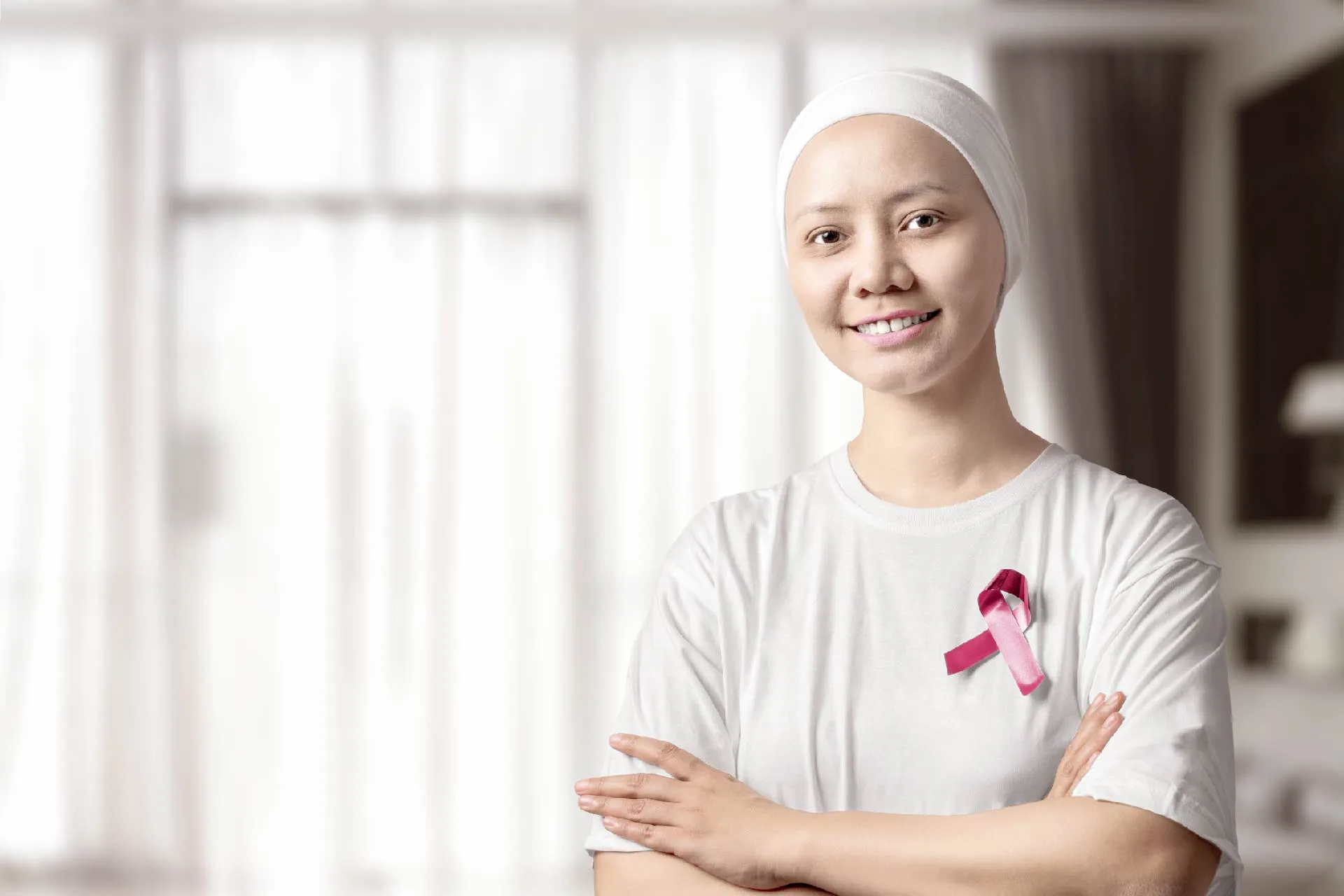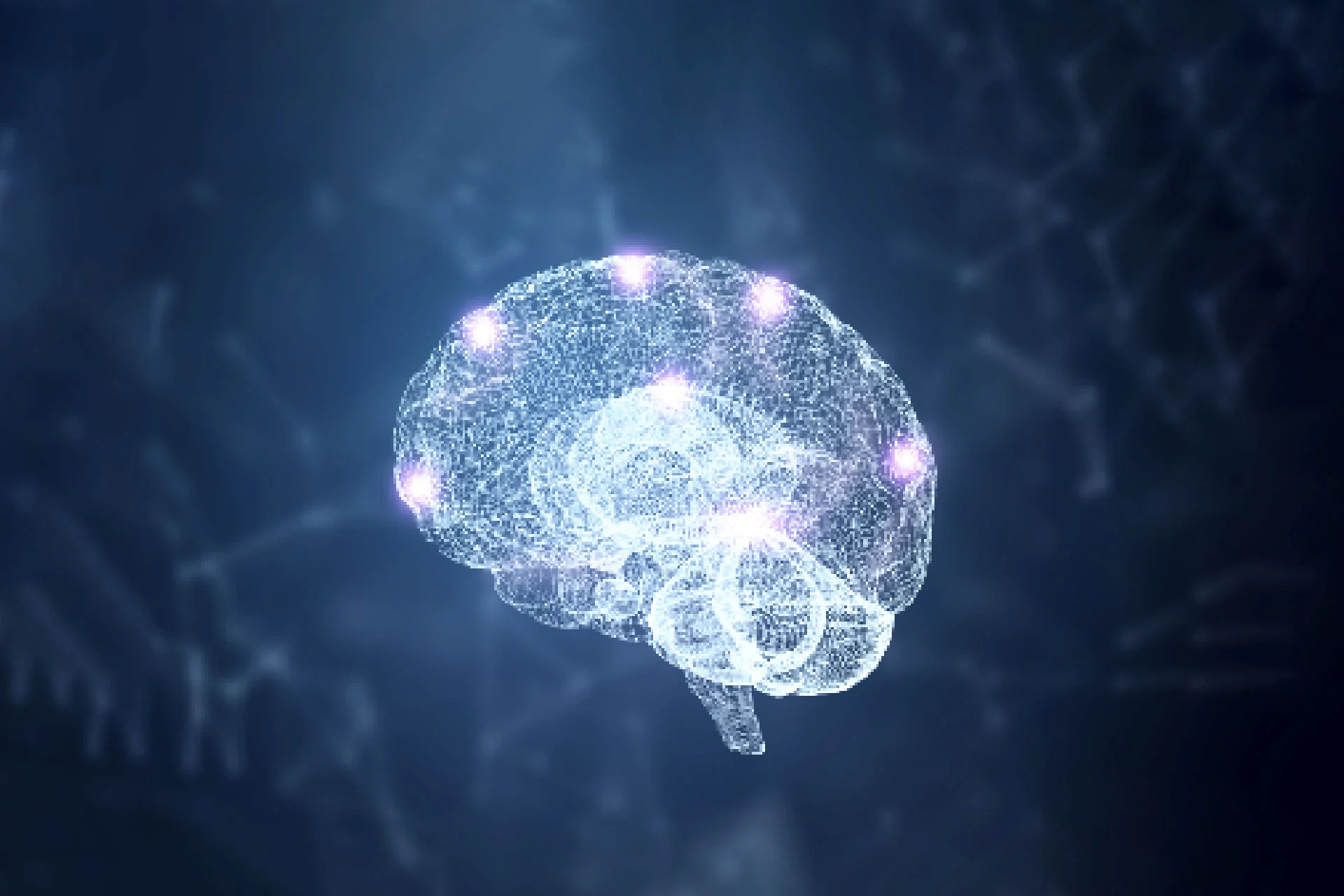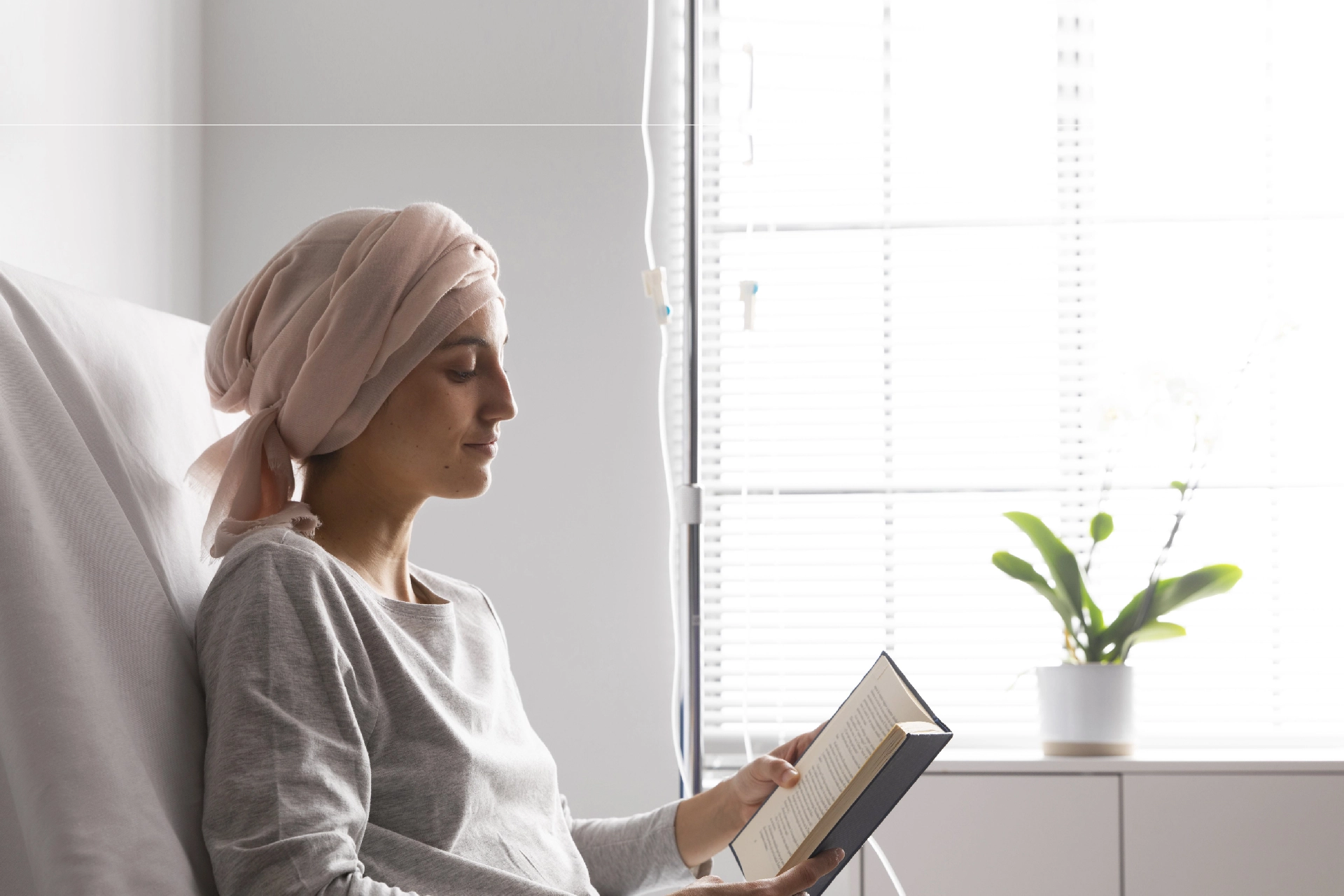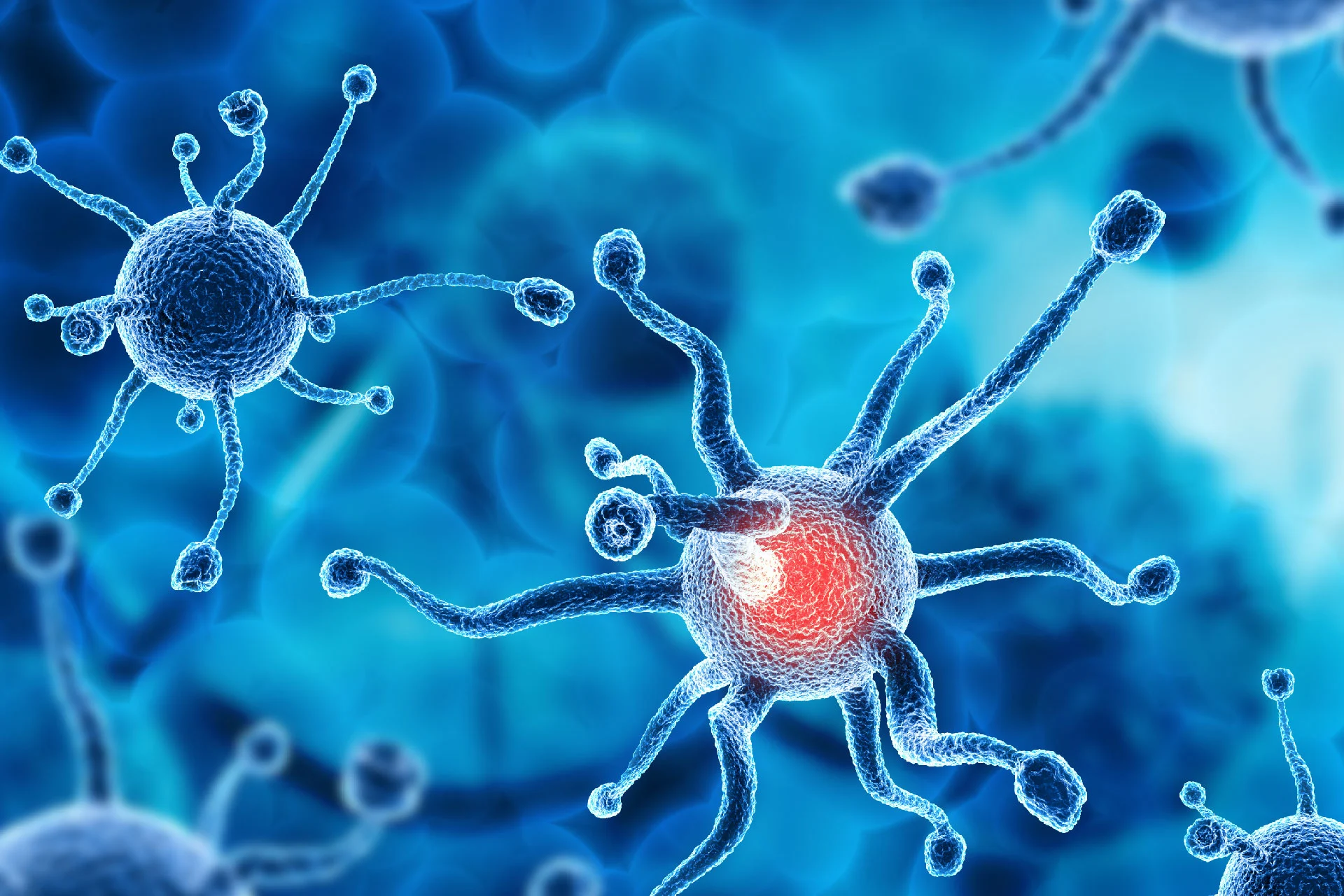Cancer | 6 min read
Hodgkin's Lymphoma: What Do You Need to Know About It?
Medically reviewed by
Table of Content
Synopsis
Key Takeaways
- Hodgkin's lymphoma affects the body's ability to fight infections
- Treatment of Hodgkin's lymphoma can often result in fertility issues, thyroid problems, etc.
- Males are at a higher risk of contracting this disease
What is Hodgkin's Lymphoma?
Hodgkin's lymphoma happens when the lymphatic system of a network of organs, nodes, and vessels is attacked. The lymphatic cells called lymphocytes grow out of hand and overpopulate, affecting the healthy white blood cells and the body's ability to fight infections or identify and kill external germs.
What causes Hodgkin's lymphoma?
It is important to get into the details of biology to understand the cause of Hodgkin's Lymphoma. Whenever there is a mutation in the DNA of white blood cells, specifically the B - lymphocytes, the directions given by that mutated DNA start to change, and this causes a change in the behavior of the B - lymphocytes. Every cell behaves as per the directions of the DNA to get into the details of this change. When the DNA gets mutated, the cells start growing in abnormally high numbers. The mutated and cancerous cells also reproduce rapidly.
When there is a spike in the mutated white blood cells, a certain affected part of the body, such as the neck or groin or skin, starts to swell up, this is mostly a sign of some abnormality which must be checked immediately.
Additional Read: What is Endometrial Cancer?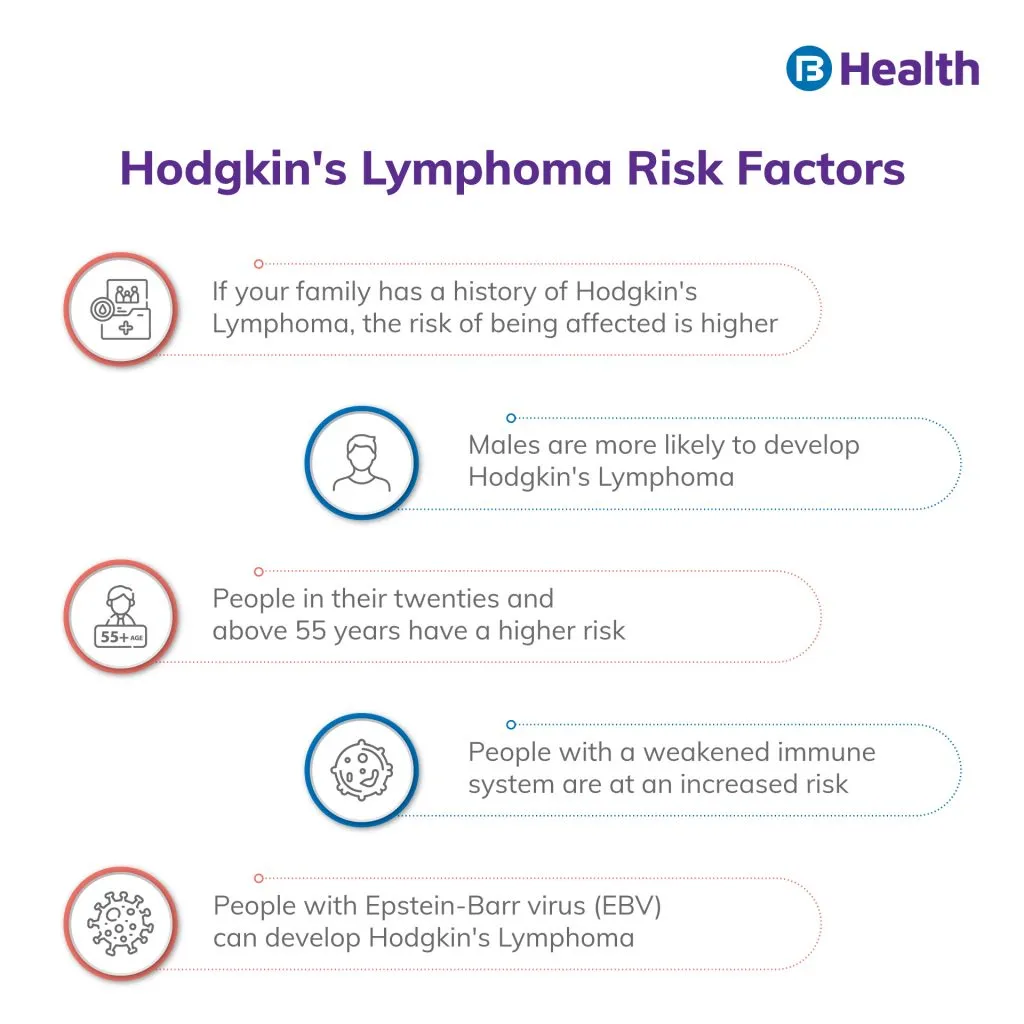
What are the symptoms of Hodgkin's Lymphoma?
Since Hodgkin's lymphoma symptoms only become visible when it is too late, identifying this cancer is tricky. However, you can always be cautious and observant of the possible Hodgkin's disease symptoms.The common Hodgkin's lymphoma symptoms may include:
- Painless swelling of the nodes in the neck, armpits, groin etc.
- Persistent fatigue
- Frequent fever
- Night sweats
- Loss of weight
- Severe itching
- Increased pain in lymph nodes after consuming alcohol
Early Signs of Hodgkin's lymphoma
The most common symptom of Hodgkin's lymphoma is swelling in the armpit, neck, or groin. It is usually painless, although some people find it painful depending on the body.
The swelling, as mentioned earlier, is caused by the abnormally high growth of lymphocytes (white blood cells) collecting in lymph nodes called lymph glands.
Additional Read: Blood Cancer (Leukemia): Its Causes and Symptoms? How to Treat This Cancer?Other symptoms
Some people with Hodgkin's lymphoma also have other, more general symptoms. These include:
- Frequent night sweats
- Unintended weight loss
- Persistent itching all over the body
- Frequent high temperature (fever)
- A persistent cough or feeling of breathlessness
Other symptoms will depend on where the enlarged lymph nodes in the body are. For example, you may experience abdominal pain or indigestion if the abdomen or stomach is affected. A few people with Hodgkin's lymphoma have abnormal cells in their bone marrow when they are diagnosed, and this may lead to the following:
- Persistent tiredness or fatigue
- An increased risk of infections due to the immune system's compromised condition
- Excessive bleeding – such as heavy periods, nosebleeds, and blotches of blood under the skin
Sometimes, people with Hodgkin's lymphoma have pain in their lymph glands after they drink alcohol, as mentioned above.
Additional Reads: Know the types of cancer caused by TobaccoWhen to get a consultation?
It is recommended to get yourself checked if you feel you have symptoms of Hodgkin's lymphoma, particularly if you have persistently swollen glands with no other signs of infection. In case of doubt, it is recommended to go and visit the doctor.
What are the risk factors?
- It is seen that members who are under the age of 45 or over the age of 55 have a higher tendency to be a victim of this form of cancer [1]
- Having been infected with the virus in the past, which causes mononucleosis, also known as mono, is considered to increase the risk of the development of Hodgkin's lymphoma
- The risk of getting Hodgkin's disease is higher in males than females
- Family history or genetics can also contribute to the risk of Hodgkin's lymphoma
- A weak immune system also leads to more vulnerability to Hodgkin's lymphoma. If the immune system is not strong, there is a high possibility that the strength of the body is compromised, which in turn makes dealing with the treatment even tougher
Treatment of Hodgkin's disease
With new advancements in the field of medicine, there are many ways a cancerous disease can be treated. It is important, however, to make sure one is maintaining a healthy life so that even in the worst cases, the body is strong enough to handle Hodgkin's lymphoma treatment. This is because the treatment depends on the body and on the stage of cancer.
Radiation therapy
Radiation therapy is one of the modern methods of treating cancer. It uses very high-energy beams of radiation to destroy cancer cells in targeted areas of the body. Radiation therapy mostly does well at killing cancer cells in people with Hodgkin's lymphoma. It is sometimes carried out post-chemotherapy for a typical Hodgkin's lymphoma cancer. It has a tendency to spread more slowly than the typical Hodgkin's lymphoma disease. Cancer specialists, in general, are likely to use radiation at the lowest effective dose to minimize potential side effects. Radiation is a tricky treatment which brings with it a lot of side effects and reactions to it. However, radiation therapy is considered one of the most effective cancer treatment methods.
Chemotherapy
Chemotherapy is the process of using certain types of medications that have the ability to kill cancer cells. Chemotherapy drugs can be taken orally or injected through a vein, based on the type of medication and the patient's convenience. The most common drug used for chemotherapy is a mixture of the drugs named adriamycin (doxorubicin), bleomycin vinblastine, Dacarbazine (DTIC)
Other Drug Therapies (Steroids)
Steroids are mostly added to chemotherapy if the initial treatment does not seem to have worked. Or, in case cancer has advanced, steroids are used. Steroids also have a successful track record; however, it comes with some side effects.
Targeted therapy
Targeted therapy medicines attack cancer cells without affecting healthy cells. This is different compared to chemotherapy since, in chemo, even the healthy cells are affected. A drug called rituximab can be added to chemotherapy if one has Nodular lymphocyte-predominant Hodgkin lymphoma (NLPHL).
Immunotherapy
Immunotherapy drugs have the power to boost the immune system's ability to target and destroy specific cancer cells.
Bone Marrow Transplant
A bone marrow transplant also happens when the condition or the cancer is too malignant. This replaces the cancerous cells in the bone marrow.
Diagnosis
There are physical exams conducted to perform a diagnosis. This physical exam may include a variety of activities and tasks. Listed below are some.
- Imaging Test
- Lymph Node Biopsy
- Blood Test
- Lung and Heart Function test
- Bone marrow biopsy
Complications
The treatment of Hodgkin's lymphoma cancer comes with a lot of complications. However, this is not always the case; it depends from body to body and the reaction of every person to the treatment. Listed below are some side effects and complications that one can expect in such a case.
- Secondary Cancer
- Fertility
- Thyroid problems (owing to major hormonal changes during and before the treatment)
- Lung-related problems
Types of Hodgkin's Lymphoma
Four types of Hodgkin's Lymphoma are mentioned below:
- Nodular sclerosis classical Hodgkin lymphoma
- Mixed cellularity classical Hodgkin lymphoma
- Lymphocyte-rich classical Hodgkin lymphoma
- Lymphocyte-depleted classical Hodgkin lymphoma
There can be multiple triggers for the DNA mutation to happen. But the key is to maintain a healthy lifestyle to ensure the immune system is strong. There are certain factors that we can control and certain factors that are out of our control. Get an oncologist consultation from Bajaj Finserv Health to find out the symptoms and get an overall idea about how the disease should be treated if any of your acquaintances are diagnosed with it.
Approaching life with a tinge of caution will take you a long way. Also, consulting with a cancer specialist will help you know more about the disease. However, if we stop the cancer cells from replicating and reproducing uncontrollably, one can be cancer free with the right treatment and precautionary measures.
References
- https://www.ncbi.nlm.nih.gov/books/NBK499969/
Disclaimer
Please note that this article is solely meant for informational purposes and Bajaj Finserv Health Limited (“BFHL”) does not shoulder any responsibility of the views/advice/information expressed/given by the writer/reviewer/originator. This article should not be considered as a substitute for any medical advice, diagnosis or treatment. Always consult with your trusted physician/qualified healthcare professional to evaluate your medical condition. The above article has been reviewed by a qualified doctor and BFHL is not responsible for any damages for any information or services provided by any third party.
